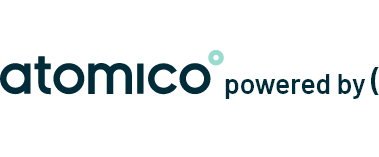2023's defining trends
Want to make sense of 2023, but don't have much time? Or simply want to start with the top-line view? We've whittled down the report to the most fundamental and useful findings of the year, so that you can get the top-line view on the State of European Tech 2023.
Investment levels have dropped globally
The market reset is not a solely European concern. The projected volume of total investment in 2023 is expected to equal less than half of the investment seen in the peak year of 2021 across every global region.
Europe outpacing US in new tech founders despite global slowdown
While there is a higher bar to enter entrepreneurship today, annual volume of founders starting new tech startups in Europe exceeds the US, and has done so consistently for every one of the past five years.
Ecosystem value bounces back to $3 trillion
After $400B in value was wiped from the ecosystem during last year’s downturn, public markets have rallied to bring Europe’s value back up to its historic high.
Of course, the market reset isn't solely a European concern: it's a worldwide phenomenon with Europe facing the same downward trend in investment as every other region globally. There has been a notably consistent reduction in global private tech investment not only in Europe, but also in the US, China, and beyond.
However, zooming out a few years, Europe has continued on an upward trajectory and is on track to raise 18% more compared to 2020. We are the only region globally where long term growth has not flattened out. Meanwhile the US, China and Rest of World are on track to land on or below 2020 figures.

One of the 'north star' metrics for the European tech ecosystem is its total value, as measured by the combined equity value of all tech companies headquartered in the region, across both public and private markets.
For context, after a peak of $3T in 2021, 2022 saw a reduction of total ecosystem value equivalent to around $400B. The rallying of the public markets this year, however, has helped this number bounce back to the $3T mark.
This rebound in ecosystem value has also been supported by the continual influx of new companies starting and raising private capital for the first time, as well as the fact that, despite a large increase in the number of down rounds, the overwhelming majority of follow-on capital deployed into the ecosystem has been through flat rounds or up rounds.
Private and public markets ecosystem value ($T), 2014 to 2023
Europe is a net beneficiary of talent flows, attracting new starters from across the globe. That means we’re gaining more international talent than we’re losing.
Notably, more talent is moving from the US to work in European tech than European talent is moving to join the US tech scene, illustrating the pull European companies now have. In fact, Europe is a net gainer of talent from every single region apart from Australia.
Global tech employee arrivals to and departures from Europe, 2023
It is not just talent that is being drawn to the hardest problems - capital is flowing in the same direction too. Here, we look at investment volumes are broken out by sector. Remarkably, the Carbon & Energy sector, which encompasses climate tech, accounts for 27% of all capital invested in European tech in 2023, more than doubling its share of investment since 2021.
Carbon & Energy has soundly overtaken Finance & Insurance and Software as the single largest sector by capital raised. This not only represents a dramatic increase in the scale of capital invested behind the green transition, but also a clear slowdown in fintech investment volumes since the peak of the market.
Distribution of total capital invested by sector (%), 2014 to 2023
There has been no shortage of perspectives on Europe's position in the AI race. Amidst the noise, it is easy to overlook the fact that the AI theme has actually hit a stride in Europe in recent years, with European AI companies consistently securing mega-rounds of $100M or more. In fact, this year will come close to matching the record set in 2021, despite the huge headwind of a steep drop in overall investment levels in Europe in 2023.
As of the end of Q3 2023, European AI companies had raised 11 rounds of $100M or more, compared to 37 rounds by US AI companies over the same period. So far, however, European AI companies have not yet raised the type of billion-dollar or multi-billion-dollar rounds that have become crucial sources of firepower for the most important and fastest-growing US AI companies, like OpenAI or Anthropic. The multi-$100M+ rounds, however, are certainly beginning to appear in Europe.
Number of $100M+ rounds in AI / ML, 2014 to 2023
As the AI wave initiates a new technology supercycle, it's an important moment to reflect on what it will take for Europe to capture a meaningful share of this opportunity.
Europe has experienced a remarkable surge in tech entrepreneurship over the last decade, resulting in the largest pool of tech startups ever seen in the region. More than 350 startups have grown to become breakout, billion-dollar companies. But this metric is inherently backwards-looking, and therefore not as useful.
The forward-looking opportunity of the European tech ecosystem is best illustrated by the nearly 4,000 growth stage tech companies that have the potential to become the next generation of European breakout success stories. What's more, this number itself is poised to double over the next five years, thanks to the breadth and depth of early stage startup activity across Europe and these companies' expected progression through the startup lifecycle.
Of course, the pool of startups at the early stages also keeps expanding. Today, Europe has 41,000 early stage startups, and in the next five years alone, this pool will be expanded by the emergence of at least 25,000 anticipated tech startups.

The story of Skype is far from unique in Europe today. In fact, the European tech ecosystem has witnessed an industry-wide surge in the number of new companies launched by individuals that have spun out of Europe's billion-dollar companies. In doing so, they benefit significantly from the established knowledge and networks they take with them.
Remarkably, nearly 9,000 companies have been initiated by alumni of European exited unicorns that were founded during the 2000s. To put this into perspective, it is nearly a staggering 50% increase compared to the unicorns founded in the 1990s.
It is not difficult to imagine how this network effect will significantly influence Europe's path in the next ten years.
Number of new 1st and 2nd generation founders spun out from exited European unicorns, by unicorn founding decade and years since founding
Europe is seeing more new tech startups being formed than any other region, supported by the strongest ever teams working on the most challenging and urgent problems. Europe has all the essential raw ingredients to become the next tech superpower. But for Europe to be able to shape the future of tech, the ecosystem needs to take further action to embrace the opportunity - and the risk that comes with it.
Europe's ability to fund and spur innovation has evolved considerably over the past decade. Nevertheless, a noticeable disparity with the US persists in terms of access to capital.
More European tech startups are formed each year, but over time, a growing gap emerges when it comes to their likelihood to secure external investment.
After five years, US tech startups are 40% more likely to have successfully secured venture capital funding. This is in spite of the fact that once companies secure an initial round of Seed investment, the probability of scaling to a billion-dollar valuation is the same in Europe as it is in the US.
This underlines the imperative for the European tech ecosystem to ensure that funding flows to European talent, giving them the firepower to compete globally and ensuring Europe can play a meaningful role in shaping the future.










